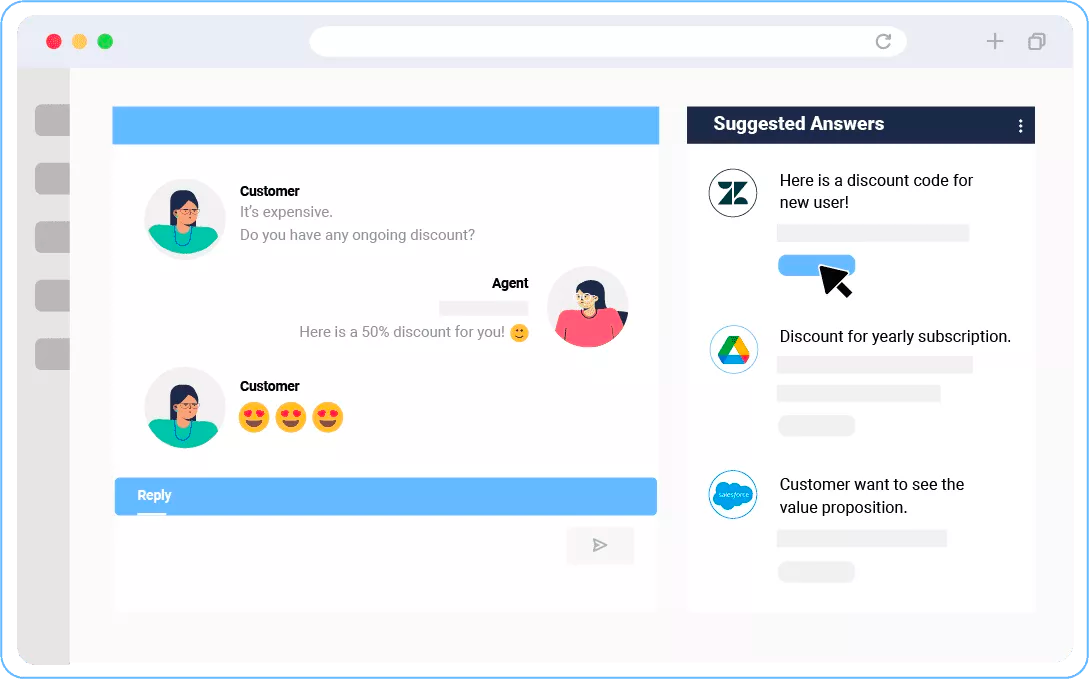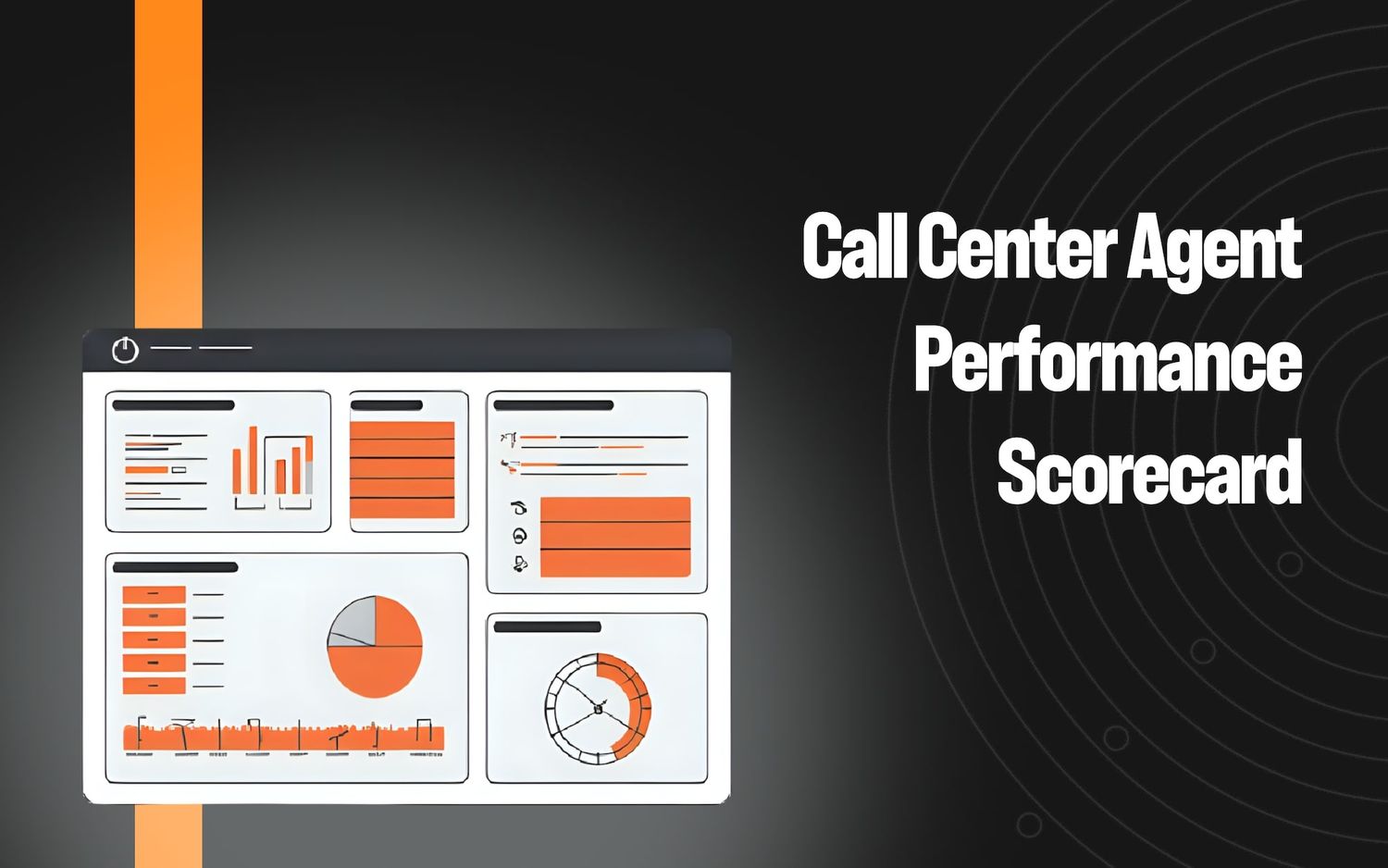Here Are 4 Ways to Effectively Coach Your Call Center Agents


With the drastic changes to the business world in recent years, the modern customer’s needs and expectations are constantly evolving. In order to keep up with this ever-changing consumer landscape, your call center agents’ methods and training need to be part of that evolution, too.
It’s no longer enough for agents to undergo a simple, standardized training upon hire with no progression or growth. Agents, and the coaching they are offered, need frequent refreshing on valuable conversation methods as well as training optimized with data to build a culture of customer value and team mentorship.
Let’s take a look at the deep value of thorough contact center coaching, as well as our four top methods for effectively coaching call center agents.
Why You Should Be Coaching Call Center Agents
There are a variety of benefits that come with coaching your call center agents, from improved customer interactions to higher employee retention. When it comes to customer service and experience, your call center agents are the front lines of your strategy — they’re the first point of contact with a customer, and that customer is most likely frustrated and coming to your agents seeking empathy, authenticity, and a resolution to their problem.
To provide the best experience for your customers and your agents, contact center managers need to equip their agents with the resources and coaching to feel confident and informed in every interaction.
The modern customer is changing
As today’s modern customer is changing, call center agents need to be prepared with updated material in order to keep up with the perpetually evolving consumer environment. For example, self-service knowledge bases are used by over 75% of customers.
As knowledge bases, FAQs, and other self-service customer service techniques are built and updated, contact center agents need to be trained with the same material as the self-service options to avoid inconsistencies in messaging and customer experience.
Another example is the need for personalization within the customer service experience. As the internet becomes increasingly aware of our wants and needs as consumers, today’s customer has equal expectations for their customer service. In fact, 60% of consumers report that they are more likely to become a repeat customer after a personalized customer experience.
In order for call center agents to provide this highly customized service, they need to be trained to access customer data with efficiency and execute a seamlessly personalized customer interaction.
Improve agent efficiency
Between fewer call center agents and more questions from customers, agents are overwhelmed with customer interactions and the many steps that come with completing a successful conversation. In fact, 93% of customer service teams believe that customer expectations are higher than ever before. But with contact center teams shrinking every day, how can call center agents meet growing customer expectations?
By thoroughly training your agents, managers can improve efficiency within the contact center, increasing productivity without sacrificing quality of customer service.
Employees feel disengaged
Currently, only 36% of employees feel engaged in their work. But that’s not without motivation to be engaged; employees are interested in learning new skills and being trained to become better and more engaged in their work. In fact, 74% of workers are willing to learn new skills or re-train in order to remain employable.
Continuously coaching employees, especially in the call center agent line of work, helps them feel that they have more value and opportunity in their careers other than to sit down and talk on the phone.
Regularly scheduled call center agent training leads to new experiences
In order to effectively coach call center representatives, the training they complete must be continuously evaluated and improved, and one of the best methods to improve it is to simply offer it to as many agents as possible. Contact center managers, simply by doing regularly scheduled coaching and training, encounter new experiences with different agents, exposing them to new questions and backgrounds that help to evaluate and diversify the training process.
Create a value-focused call center culture
To ingrain customer and team value into your agents’ processes, they need more than a baseline training only delivered on Day One. Call centers should work to establish a culture that understands the value held by the customer, as well as the value of each individual team member and their place at the company.
Creating this culture helps agents have greater empathy toward the customers, an essential factor of positive interactions, as well as helps agents feel valued within the organization.
4 Ways to Improve Contact Center Coaching
While there are a number of factors that contribute to effective and well-rounded contact center coaching, we’ve put together what we believe are the four most important elements to improve your contact center agent training.
1. Customer service training to coach the coaches
In order for coaches to really connect with their agents, they need to have experienced and been well-trained in the coaching program themselves. Once the coaching material has been designed, don’t deliver it straight to the agents — train your coaches first so that they are able to learn the material and deliver it in a way that is most effective for a variety of learning styles.
2. Use dynamic resources
As technology around the world has upgraded, so have the ways people like to learn. For example, employees today are 95% more likely to recall knowledge delivered via video than text alone.
To deliver the most effective and memorable coaching material, it’s important for your employees to hear from accredited and experienced trainers in a dynamic, interactive format. For the training to be most effective, try creating each section or module through your contact center quality management system in a different, dynamic format to keep agents engaged and stimulated by the delivery.
3. Practice makes perfect
The best coaching experiences include ways for agents to practice customer conversations right within the training. Employees retain material particularly well with real-world practicing opportunities. In fact, 68% of employees prefer to learn on the job. When contact center leaders can provide prompts and opportunities for conversation practice, it helps agents learn in a more effective and longer-lasting way.
4. Improve call center agent training with data
A contact center quality management solution can provide managers with data and insights into how agents are performing with a call center agent performance scorecard. Sophisticated call center quality management software, such as the solution from Level AI, offers “agent recording,” which empowers call center leaders to see the highly specific ways in which agents need assistance. Coaches can then use that data to improve and customize their coaching to specifically address skills that are lacking throughout their team of agents.
Optimize Your Contact Center Coaching with Level AI

Contact center agents need to be adaptable to the ever-changing customer, but they need the proper training and materials to do so. With the contact center quality management solution from Level AI, contact center leaders can deliver high-quality call center agent coaching and empower their team to even conduct their own personal training.
Level AI optimizes the contact center coaching experience with:
- Highly Organized Customer Conversations: InstaReview™ automatically picks out your most important conversations and tags them with color-coded labels that are easy for QA teams to identify. Agents can easily refer back to a specific customer interaction and use it to continuously improve their customer conversation methods.
- Complex Customer Scenario Grading: The Rubric Builder™ tool allows call center teams to create custom grading systems to evaluate all support conversations. Agents can customize grading questions, scores, weightage, and more for different roles and customer identification categories. With this reporting, call center coaches are better able to complete the QA calibration process and work findings into training for coaches and agents alike.
- Advanced Automation Tools: Level AI uses semantic intelligence, which looks for customer intent rather than language, to analyze, score and tag key moments in every agent conversation. With this data, call center agents can easily identify well-executed conversations, as well as those with needed improvement to address specific areas for additional coaching.
- Agent Assist™: Level AI’s Agent Assist™ program is packed with useful tools for coaching call center agents. Agents can review their scores, keep track of their most important metrics, and learn how to improve performance without one-on-one human coaching. Your agents can also train Level AI by providing feedback. Our models learn and provide better results over time. If Agent Assist™ doesn’t help with a customer issue, agents can flag it.
- Agent Screen Recording: Agent screen recording provides a mechanism for contact center managers to identify process improvement opportunities and to accurately monitor process adherence. Screen recordings are automatically attached to every resolved support ticket. QA teams can simultaneously see and hear agent interactions with customers when reviewing individual cases.
To learn more about the power of data for coaching your contact center agents, request a demo today.
Keep reading
View all





